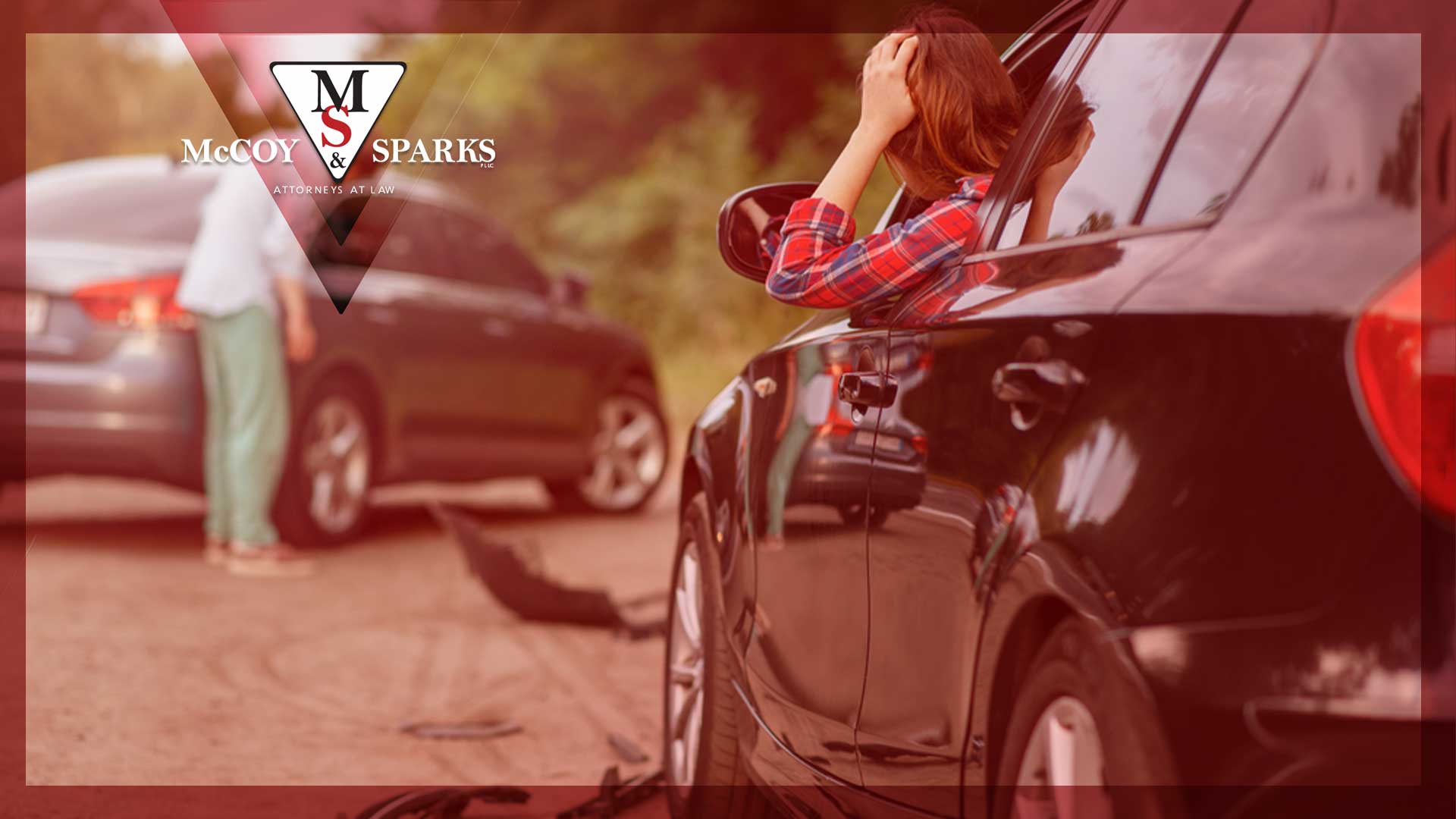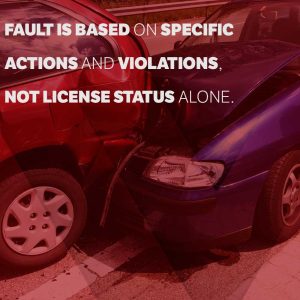
What you’ll learn in this article:
- The role of driver’s licenses and vehicle registration in the investigation of an accident.
- Kentucky’s pure comparative negligence law.
- How insurance claims are affected when a driver is unlicensed.
- The legal implications of driving without a license.
Being involved in any car accident can be scary and stressful. But a car accident with an unlicensed driver can raise even more questions and concerns. What if the other driver wasn’t legally allowed to operate a vehicle? How does that impact who is at fault and the claims process?
This article examines what happens when an unlicensed driver in an accident is not at fault, including determining liability, filing claims, and navigating insurance. With the right information, you can protect your rights and get the compensation you deserve.
Unlicensed Drivers and Accident Liability
In accidents involving unlicensed drivers, the first step is determining liability or fault. Police will investigate the crash and piece together how it occurred. They’ll also check driver’s licenses and vehicle registrations.
If the driver without a license involved in the accident acted recklessly or negligently, they will likely be deemed fully at fault. Common examples include speeding, running a red light, or drunk driving. Police reports and witness statements help establish fault.

However, being unlicensed does not automatically make the driver liable. Fault is based on specific actions and violations, not license status alone. If the licensed driver was speeding or texting when they hit the unlicensed driver, they may share partial or full responsibility.
Kentucky is a pure comparative negligence state. This law allows for dividing fault percentages between multiple drivers based on their contributions to the accident. So both licensed and unlicensed motorists can share blame if both made poor decisions. If you were partially at fault for the accident, you can still file a claim for negligence against the unlicensed driver. Your settlement will just be reduced by the amount of fault that you are assigned.
Impact on Insurance Claims
Insurance coverage gets more complicated when an unlicensed driver is involved. Most policies require drivers to be properly licensed to operate covered vehicles. If an unlicensed driver causes an accident in their own uninsured car, you can’t file a claim against their insurance.
However, you can file a claim with your insurer under uninsured motorist coverage or collision coverage. Rates may increase after claiming uninsured motorist benefits. And your insurer may then try to recover money from the unlicensed driver directly through subrogation.
If the unlicensed driver was operating a vehicle they don’t own, the vehicle owner’s insurance may provide liability coverage. Permissive use policies often cover drivers operating with the owner’s knowledge, even if unlicensed. However, coverage limits may be lower for non-listed household members.
Dealing with injuries and vehicle damage can be very difficult if the at-fault driver has no insurance. For serious crashes, consulting a car accident attorney about options for seeking maximum compensation is advisable.
Impact on the Unlicensed Driver
Drivers who cause accidents without a valid license face serious legal and financial consequences. They can be issued citations for driving without a license, failure to carry insurance, and any additional violations like speeding or recklessness.
At-fault drivers can be sued directly by injured parties to recover damages like medical bills, lost wages, and pain and suffering. While suing an uninsured defendant has challenges, courts can order payment plans or asset seizure to pay judgments.
In addition to fines, an unlicensed driver will likely face license suspension. They will have to satisfy all judgments before becoming eligible to apply for a license. And once licensed, high-risk insurance rates will make costs even higher.
Defending Yourself as the Unlicensed Driver
On the other hand, you may be thinking, “Someone hit me and I have no license!” Even without a valid license, you have legal rights if you’re involved in an accident you did not cause. The other driver must still prove you acted negligently and violated traffic laws.
Be careful discussing your license status with police or insurers. Anything said can be used to assign blame or deny claims. Do not admit fault or sign any documents without an attorney present. An experienced lawyer can defend your rights during the claims process.
If injuries are involved, make sure to receive prompt medical care. Document all losses related to the accident thoroughly and avoid further driving without a license to prevent additional charges. Maintaining proper insurance and license status remains critical for legal and financial protection.
Expert Legal Guidance from McCoy & Sparks
Driving without a license is illegal for good reason – it often leads to accidents and denied claims. But even unlicensed drivers in an accident not at fault have protections under the law. Understanding the claims process, exploring insurance options, and consulting qualified legal help are critical after an unauthorized driver car accident. With the right approach, you can achieve a fair outcome.
Whether you were struck by an unlicensed driver or you were an unlicensed driver in accident not at fault, our car accident attorneys are here to help. You owe McCoy & Sparks nothing unless we recover compensation for you. Schedule your FREE consultation by calling 844-459-9467 or filling out our online form.

